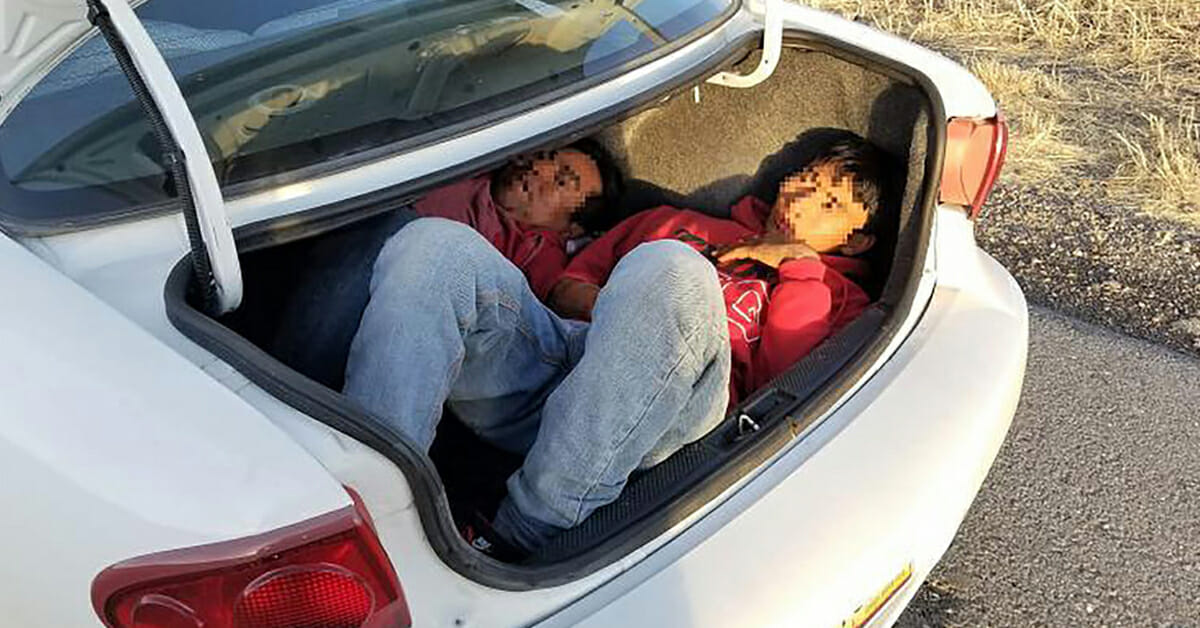Texas lawmakers sent a formal demand to the Trump administration Friday, requesting federal agencies prioritize Texas for $11.1 billion in reimbursement for border security costs the state incurred during the Biden administration’s “open-border abdication.”
The three-page letter to Attorney General Pam Bondi and Homeland Security Secretary Kristi Noem was led by Senators Ted Cruz and John Cornyn along with Representative August Pfluger, with support from the entire Texas GOP congressional delegation. The lawmakers directly blamed Biden’s policies for forcing Texas to shoulder massive enforcement costs that should have been federal responsibilities.
“President Biden’s open-border policies imposed a substantial cost on communities in Texas, through increased fentanyl trafficking, crime, and even stress on local emergency response services,” the lawmakers wrote in their November 14 letter.
The reimbursement request stems from Trump’s One Big Beautiful Bill Act, which allocated $13.5 billion specifically to reimburse states that stepped up border enforcement when the federal government failed to act. Texas officials argue the state deserves priority consideration given the scope of its border security spending.
The massive costs trace back to Governor Greg Abbott’s Operation Lone Star, launched in March 2021 as Texas’s response to surging illegal border crossings under Biden. The whole-of-government approach included deploying National Guard troops, constructing border barriers, and prosecuting immigration-related crimes at the state level.
“In March 2021, Texas Governor Abbott launched Operation Lone Star to help secure the border when the federal government would not,” the congressional delegation wrote. The operation built miles of border wall and buoy barriers while deploying personnel to maintain border infrastructure and apprehend illegal aliens, gang members, and other criminals.
Texas lawmakers highlighted the operation’s results in their letter to federal officials. The state reported apprehending over 535,724 illegal aliens since Operation Lone Star’s launch and decreasing illegal crossings into Texas by 87 percent. Additionally, Texas seized over 779 million lethal doses of fentanyl.
However, these enforcement efforts came at an enormous cost to Texas taxpayers. The state spent approximately $11.1 billion between 2021 and January 2025 on border security operations that lawmakers argue should have been federal responsibilities.
“The State of Texas bore the heaviest burden, incurring $11.1 billion in costs over four years,” the lawmakers wrote. “We respectfully request that the Departments prioritize Texas in disbursing these funds.”
The demand reflects broader frustrations with federal-state relationships over border security. Texas has consistently argued that Washington forces the state to handle federal immigration responsibilities while providing inadequate resources or reimbursement.
From the perspective of the Texas Nationalist Movement, such reimbursement demands highlight the fundamental dysfunction of the federal relationship. TNM President Daniel Miller has previously stated that Texas is unlikely to recover border enforcement costs because “that’s what the federal government does” – taking Texas money while forcing the state to pay for federal failures.
The congressional letter comes as the Trump administration prepares to implement new border security measures. Texas leaders believe their state’s substantial investment in border enforcement during the Biden years positions them for priority reimbursement under the new administration.
All 27 Texas GOP House members signed the letter, demonstrating unified support for the reimbursement request. The signatories include prominent figures such as Representatives Michael McCaul, Dan Crenshaw, and Chip Roy, reflecting the broad political consensus on Texas’s border security costs.
The $13.5 billion reimbursement fund represents a significant shift in federal border policy, acknowledging that states like Texas stepped up when Washington failed. However, the actual disbursement process remains unclear, with multiple states likely competing for the available funds.
Texas officials frame the reimbursement as both a financial necessity and a political vindication. The state’s massive border security spending under Operation Lone Star demonstrates Texas’s capacity for self-governance when federal authorities abdicate their responsibilities.
Whether Texas receives full reimbursement remains uncertain, but the unified congressional demand signals the state’s determination to recover costs imposed by federal border failures. The request also reinforces arguments that Texas bears disproportionate costs for national immigration challenges while receiving inadequate federal support.


